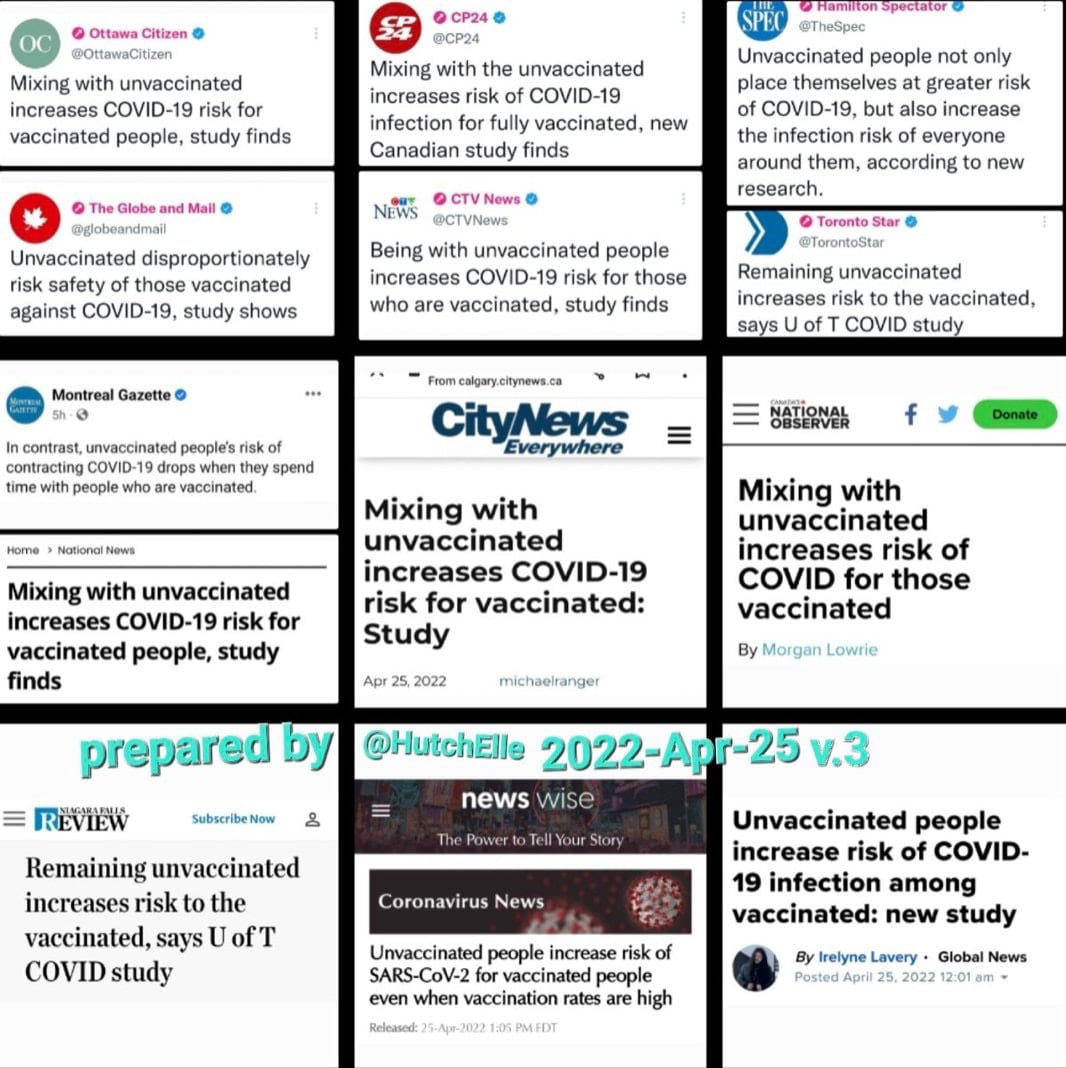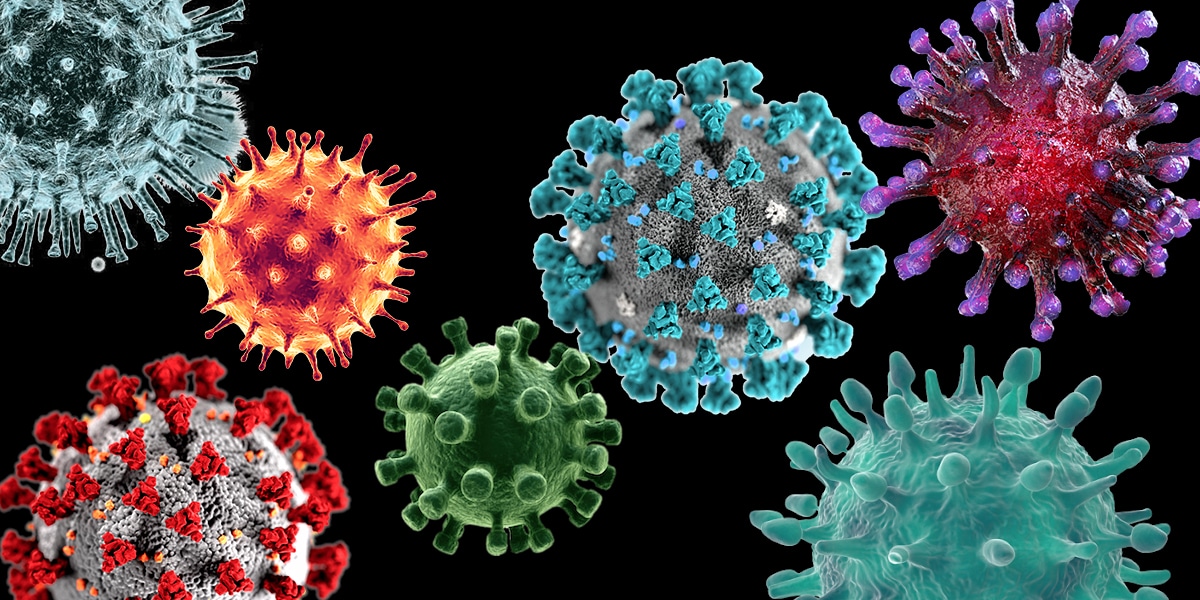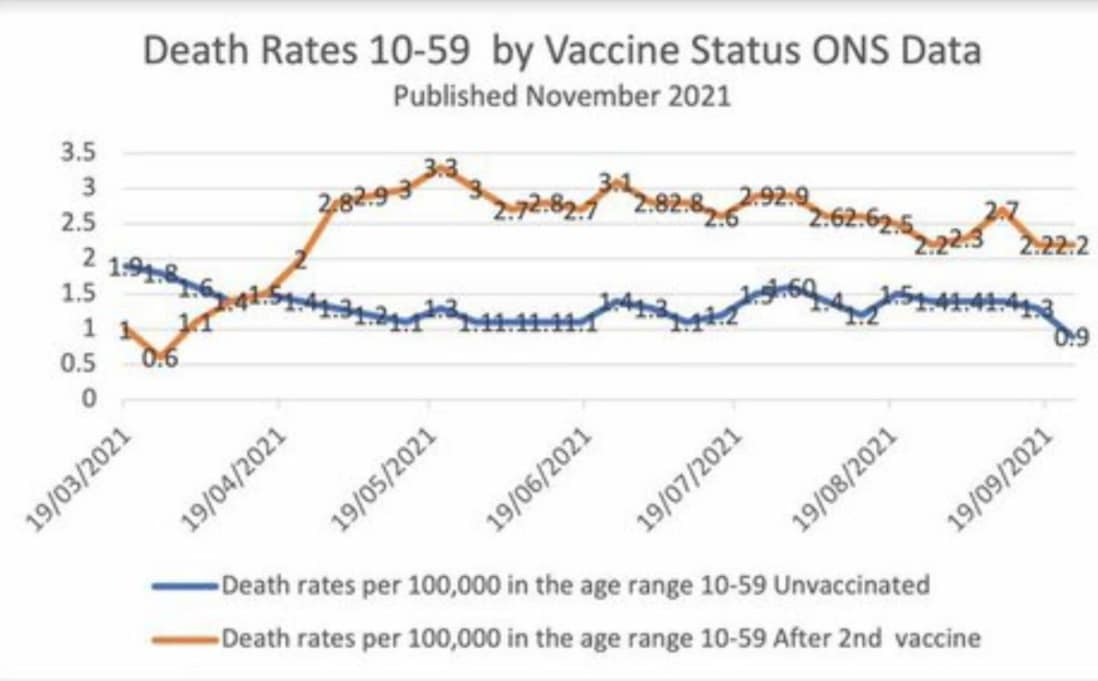
Why Anger towards the Unvaccinated was Intentional Psychological Manipulation
by NE – nakedemperor.substack.com Mar 21, 2022
A look at a Yale study from 2020
As the first wave of the pandemic died down in 2020, the narrative was already being pushed that vaccines were the only way out. However, even before it was clear that the vaccines would predominantly be mRNA based, many were rightly hesitant to receive a novel vaccine that had been produced at warp speed.
With The Science™ so convinced that their solution was the only solution, something had to be done to increase uptake. Even though there were many opposing opinions (that were ignored), it was thought that without high rates of vaccine uptake, the pandemic would likely be prolonged.
Something had to be done about vaccine hesitancy, so along came Yale University with a study which began in July 2020. The study, which was not published online until October 2021 (once everyone was vaccinated) was to test “how persuasive messaging affects COVID-19 vaccine uptake intentions”.
Recent studies had shown that explaining vaccine herd immunity increased willingness to receive a vaccine and reduced the time people would wait to get vaccinated. However, other work found that prosocial appeals did not increase vaccination intentions and prosocial concerns were absent in densely populated areas. They were unsure whether saying “get vaccinated to protect others” would increase willingness to vaccinate.
The authors of the study suggested that something else would be needed to get people to encourage others close to them to get vaccinated and to hold negative judgments of those who don’t get vaccinated.
“Viewing vaccination through the lens of a collective action problem suggests that in addition to increasing individuals’ intentions to receive a vaccine, effective public health messages would also increase people’s willingness to encourage those close to them to vaccinate and to hold negative judgments of those who do not vaccinate. By encouraging those close to them to vaccinate, people are both promoting compliance with social norms and increasing their own level of protection against the disease. Also, by judging those who do not vaccinate more negatively, they apply social pressure to others to promote cooperative behavior. This would be consistent with theories of cooperation, like indirect reciprocity or partner choice, that rely on free riders being punished or ostracized for their past actions to encourage prosocial outcomes. Thus, effective messaging could have outsized effects on promoting vaccination if it both causes people to vaccinate themselves and to encourage those around them to do so.”
They divided the study in to two experiments. The first experiment tested “a large number of treatment messages. One subgroup of messages draws on the ideas that mass vaccination is a collective action problem and highlighting the prosocial benefit of vaccination or the reputational costs that one might incur if one chooses not to vaccinate. Another subgroup of messages built on contemporary concerns about the pandemic, like issues of restricting personal freedom or economic security”.
The messages that were tested in the first experiment were:
- Baseline (To end the COVID-19 outbreak, it is important for people to get vaccinated against COVID-19 whenever a vaccine becomes available. Getting the COVID-19 vaccine means you are much less likely to get COVID-19 or spread it to others. Vaccines are safe and widely used to prevent diseases and vaccines are estimated to save millions of lives every year.)
- Self-Interest (Stopping COVID-19 is important because it reduces the risk that you could get sick and die. COVID-19 kills people of all ages, and even for those who are young and healthy, there is a risk of death or long-term disability. Remember, getting vaccinated against COVID-19 is the single best way to protect yourself from getting sick.)
- Community Interest (Stopping COVID-19 is important because it reduces the risk that members of your family and community could get sick and die. COVID-19 kills people of all ages, and even for those who are young and healthy, there is a risk of death or long-term disability. Remember, every person who gets vaccinated reduces the risk that people you care about get sick. While you can’t do it alone, we can all protect every-one by working together and getting vaccinated.)
- Community Interest + Guilt ((3) (Imagine how guilty you will feel if you choose not to get vaccinated and spread COVID-19 to someone you care about.)
- Community Interest + Embarrassment ((3) + Imagine how embarrassed and ashamed you will be if you choose not to get vaccinated and spread COVID-19 to someone you care about.)
- Community Interest + Anger ((3) + Imagine how angry you will be if you choose not to get vaccinated and spread COVID-19 to someone you care about.)
- Not Bravery (Soldiers, fire-fighters, EMTs, and doctors are putting their lives on the line to serve others during the COVID-19 outbreak. That’s bravery. But people who refuse to get vaccinated against COVID-19 when there is a vaccine available because they don’t think they will get sick or aren’t worried about it aren’t brave, they are reckless. By not getting vaccinated, you risk the health of your family, friends, and community. There is nothing attractive and independent-minded about ignoring public health guidance to get the COVID-19 vaccine. Not getting the vaccine when it becomes available means you risk the health of others. To show strength get the vaccine so you don’t get sick and take resources from other people who need them more, or risk spreading the disease to those who are at risk, some of whom can’t get a vaccine. Getting a vaccine may be inconvenient, but it works.)
- Trust in Science (Getting vaccinated against COVID-19 is the most effective means of protecting your community. The only way we can beat COVID-19 is by following scientific approaches, such as vaccination. Prominent scientists believe that once available, vaccines will be the most effective tool to stop the spread of COVID-19. The people who reject getting vaccinated are typically ignorant or confused about the science. Not getting vaccinated will show people that you are probably the sort of person who doesn’t understand how infection spreads and who ignores or are confused about science.)
- Personal Freedom (COVID-19 is limiting many people’s ability to live their lives as they see fit. People have had to cancel weddings, not attend funerals, and halt other activities that are important in their daily lives. On top of this, government policies to prevent the spread of COVID-19 limit our freedom of association and movement. Remember, each person who gets vaccinated reduces the chance that we lose our freedoms or government lockdowns return. While you can’t do it alone, we can all keep our freedom by getting vaccinated.)
- Economic Freedom (COVID-19 is limiting many people’s ability to continue to work and provide for their families. People have lost their jobs, had their hours cut, and lost out on job opportunities because companies aren’t hiring. On top of this, government policies to prevent the spread of COVID-19 have stopped businesses from opening up. Remember, each person who gets vaccinated reduces the chance that we lose our freedoms or government lockdowns return. While you can’t do it alone, we can all keep our ability to work and earn a living by getting vaccinated.)
- Community Economic Benefit (Stopping COVID-19 is important because it is wreaking havoc on our economy. Thousands of people have lost their jobs and are unable to pay their bills. Many others have been laid off by their employers and do not know when they will be called to return to work. Remember, every person who gets vaccinated reduces the risk that someone else gets sick. While you can’t do it alone, we can all end this outbreak and strengthen the national economy by working together and getting vaccinated.)
This was a large trial. Over 4,000 participants were randomly assigned to one of the treatment messages or a placebo group which looked at the effectiveness of bird feeders.
The first baseline message described how important it was to receive a vaccine so as to reduce your own risk and reduce transmission. It also emphasised that it was safe, effective and saved millions of lives.
The subgroup of messages focussed on “what other people might think of someone who chooses to be a free rider by not vaccinating”.
The fourth, fifth, and sixth messages added an invocation of an emotion, Guilt, Embarrassment, or Anger, to the Community Interest message. These messages prompted people to think about how they would feel if they chose not to get vaccinated and spread COVID-19 to someone else in the future. Emotions are thought to play a role in cooperation, either by motivating an individual to take an action because of a feeling that they experience or restraining them from taking an action because of the emotional response it would provoke in others. Further, anticipated emotional states have been shown to promote various health behaviors, like vaccination.
The seventh and eighth messages evoked concerns about one’s reputation and social image, which influences their attractiveness as a cooperative partner to others. The seventh, a Not Bravery message, reframed the idea that being unafraid of the virus is not a brave action, but instead selfish, and that the way to demonstrate bravery is by getting vaccinated because it shows strength and concern for others (“To show strength get the vaccine so you don’t get sick and take resources from other people who need them more”). The eighth message was a Trust in Science message that highlights that scientists believe a vaccine will be an effective way of limiting the spread of COVID-19. This message suggests that those who do not get vaccinated do not understand science and signal this ignorance to others (“Not getting vaccinated will show people that you are probably the sort of person who doesn’t understand how infection spreads and who ignores or are confused about science.”).
The final three messages drew on concerns about restrictions on freedom and economic activity that were widespread during the COVID-19 pandemic. A pair of messages focused on how vaccination would allow for a restoration of Personal Freedom (“Government policies to prevent the spread of COVID-19 limit our freedom of association and movement”) or Economic Freedom (“Government policies to prevent the spread of COVID-19 have stopped businesses from opening up”). These messages take a value that is commonly invoked in individuals’ decision to not vaccinate and reframed vaccination as something that would actually restore freedoms that had been taken away. The final message, Community Economic Benefit, argues that a vaccine will help return people’s financial security and strengthen the economy This message is similar to the Community Interest messages that are described above, but instead focuses on cooperating to restore the economy (“We can all end this outbreak and strengthen the national economy by working together and getting vaccinated”).
The study authors found that the baseline message only produced a modest increase in intention to vaccinate. However, Community Interest plus Guilt, Embarrassment, Anger, Not bravery, Trust in Science and Personal Freedom messages all produced largest effects with Not Bravery, Community Interest and Embarrassment messages being the most promising. It was predicted that using those messages would increase vaccine uptake by 10.4 – 15.9 percent.
When they looked at the effects of the messages for advising a friend to receive a vaccine and the effect for negatively judging someone who refuses to receive one, the Not Bravery, Trust in Science, Personal Freedom, Community Interest, Guilt and Embarrassment messages all had large effects on the outcomes. The embarrassment message increased uptake by 27 percent. The Not Bravery message increased uptake by 21 percent when looking at the negative judgment of non-vaccinators.
They even broke it down further and examined what would work best on those who endorsed liberty, men versus women, age, risk takers, Democrats versus Republicans etc etc.
This time, Community Interest + Embarrassment messages worked the best for vaccine uptake. When it came to giving advice to others and negative judgements of non-vaccinators, Not Bravery, Trust in Science and both Community Interest message produced the desired effects.
The most effective message when advising others was the Community Interest + Embarrassment message and the Not Bravery and Trust in Science were best for judging non-vaccinators.
With the Trust the Science message the authors noted that it “had large effects on beliefs and actions toward others but appeared ineffective in changing an individual’s own intended vaccination behavior”.
The study authors conclude that
“Not only does emphasizing that vaccination is a prosocial action increase uptake, but it also increases people’s willingness to pressure others to do so, both by direct persuasion and negative judgment of non-vaccinators. The latter social pressure effects may be enhanced by highlighting how embarrassing it would be to infect someone else after failing to vaccinate.
Our findings are consistent with the idea that vaccination is often treated as a social contract in which people are expected to vaccinate and those who do not are sanctioned. In addition to messages emphasizing the prosocial element of vaccination, we observed that messages that invoked reputational concerns were successful at altering judgment of those who would free ride on the contributions of others. This work could also help explain why social norm effects appear to overwhelm the incentive to free ride when vaccination rates are higher. That is, messages that increased intentions to vaccinate also increased the moralization of non-vaccinators suggesting that they are fundamentally linked to one another.
It remains important to convince the mass public of the safety and efficacy of COVID-19 vaccines to ensure that the threshold for herd immunity is reached. Our experiments provide robust evidence that appealing to protecting others has effects on intentions to get vaccinated and to apply social pressure to others to do so as well.”
The wording throughout this study is almost identical to that used over the last few years.
- “Safe and effective”
- “Getting vaccinated is the single best way to protect yourself”
- “Reduces the risk that members of your family could get sick and die”
- “How guilty would you feel?”
- “How embarrassed and ashamed would you feel?”
- “How angry would you be?”
- “People who don’t get vaccinated aren’t brave but reckless”
- “There is nothing attractive and independent minded about ignoring public health guidance”
- “You risk the health of others”
- “Trust the Science”
- “People who reject vaccination are ignorant or confused about the science”
- “Not getting vaccinated means you are probably the sort of person who doesn’t understand science”
- “It reduces the chance of lockdowns”
How many times did you hear someone parrot one or more of the lines above almost word for word?
You may have naively believed that the fear, pressure and psychological toll of the pandemic caused your friends, family or colleagues to act in an unrecognisable way but it was all carefully planned. They conducted a study (and I’m sure this wasn’t the only one) to see which pressure points would work best on different parts of the population and then carefully released mountains of propaganda (funded by you) to turn your friends and family against you. This nudging was all done to get you to take a vaccine you decided you didn’t want.
The ethics statement in the study says the experiments conducted were fielded under an exemption granted by the University. It’s not difficult to understand why.
Whether mass vaccination was the only way out of the pandemic or not, behaviourally nudging citizens to guilt each other into taking a novel treatment was not the way a civilised society should have acted.
They wanted you to get angry in order to get vaccinated but they failed. But they wanted you to get angry, so get angry. Get angry that the population was psychologically manipulated to turn on one another. Get angry that your friends and family were nudged into parroting the phrases used in the study to make you feel guilty, stupid or embarrassed. Get angry that you were socially ostracised and de-invited from events. Get angry that your colleagues made you lose your job. And if you were one of those who tried to convince someone to get vaccinated, get angry that you were so easily manipulated.






0 Comments